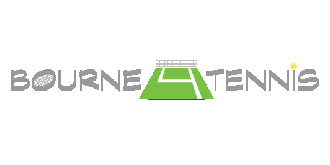Code of practice for working with young people
Winton tennis club recognises that children and young people are able to play tennis because of the adults, both paid and unpaid, who provide opportunities for them to do so. All of these adults have special responsibilities to the children they work with.
This code of conduct should be adopted by all adults working with children or young people at the club.
Good conduct not only prevents incidents and allegations, but also helps to highlight any conduct (by other people) that is unsafe or unprofessional.
Those working with children in tennis should:
1. Be professional and maintain the highest standards of personal behaviour at all times.
2. Recognise the trust placed in adults by children, and recognise the power held over children by adults. Treat this trust and this power with the highest responsibility.
3. Try to work in an open and accountable manner at all times. Work in view of others wherever possible, be wary of working alone and unobserved, and be willing to accept questions or criticism regarding good practice.
4. Expect others to work in an open and accountable manner. Question and criticise the practice of others if necessary.
5. Be mindful of the need to provide safe environments for all children, regardless of age, gender, disability, race, religion, ethnicity, social status or sexuality. Remember that some children are particularly vulnerable because of their identity and will find it hard to ask for help or to voice concerns.
6. Maintain a professional relationship with children. Any form of sexual relationship or activity with a child is unacceptable and could lead to disciplinary or legal action.
7. Not be under the influence of drink, drug or any substance.
8. Use appropriate and respectful forms of discipline and communication. Physical aggression, intimidation, verbal abuse or persistent shouting are unacceptable. Any form of assault (eg. hitting, kicking, pinching, slapping) should be regarded as a serious incident.
9. Use appropriate language. Don’t swear, and never make sexual or suggestive comments to a child. If a child makes comments like these, be prepared to enforce these boundaries in your response.
10. Not appear to favour one child or show interest in one child more than another.
11. Not discriminate against a child because of his/her age, gender, disability, culture, language, racial origin, religious belief or sexual identity.
12. Ensure that young people of all abilities and backgrounds are included throughout the tennis programme. Where required coaches should adopt inclusive coaching methods. Consultation and dialogue with the player(s) or their guardian/carer where required will support this process.
13. Use physical contact with players only where necessary. If contact is necessary, (eg for purposes of coaching or first-aid), then explain to the player what the contact is for, and change your approach if he or she appears uncomfortable.
14. Design and use training methods and training programmes which are appropriate to the individual player.
15. Be aware of situations that could be misunderstood or manipulated by other adults. For example, if a coach or official is alone with a child in a clubhouse, changing room or car, he or she may be vulnerable to allegations of misconduct.
16. Be vigilant and aware of how actions can be misinterpreted by children.
Remember:
a. Actions made with good intentions can seem intrusive or intimidating to some children.
b. Some children may be attracted to the adults working with them.
c. Adults should be aware of the impact of their actions, and should sensitively address any misunderstanding.
If a concern about a child’s welfare comes to your attention:
1. Take seriously any suspicion or allegation of abuse, or any disclosure of concern made by a child.
2. Record information, including relevant details. Be sure to record opinions or feelings as such; do not record them as facts. Do not question or interview the people involved in the incident of concern.
3. Do not promise confidentiality. Be honest and tell the child that you may need to pass on the concern.
4. Report any concerns within the area of Child Protection (physical, emotional or sexual abuse, neglect or bullying), in confidence and without delay, to the Club, County or LTA Child Protection Officer or safeguarding teams. If these cannot be contacted and there is an immediate risk, contact the Police or the local social services.
5. Never discuss an allegation or suspicion with another person, (other than the Police or social services), before receiving advice from your CPO or from the LTA Safeguarding Team.
Remember that it is the responsibility of all adults to safeguard children in sport. By recognising, following and discussing the principles behind this code, you are helping to make bad practice and abuse unwelcome in tennis.
Where this code has been breached, the LTA will always try to take action to address the situation, including formal Child Protection or Disciplinary action where appropriate. We also encourage other organisations to do the same.
For more information on issues like these, go to www.lta.org.uk/childprotection or contact the department directly using the details below:
LTA Safeguarding –
T: 0208 487 7116/7056,
E: childprotection@lta.org.uk
W: www.LTA.org.uk/childprotection




